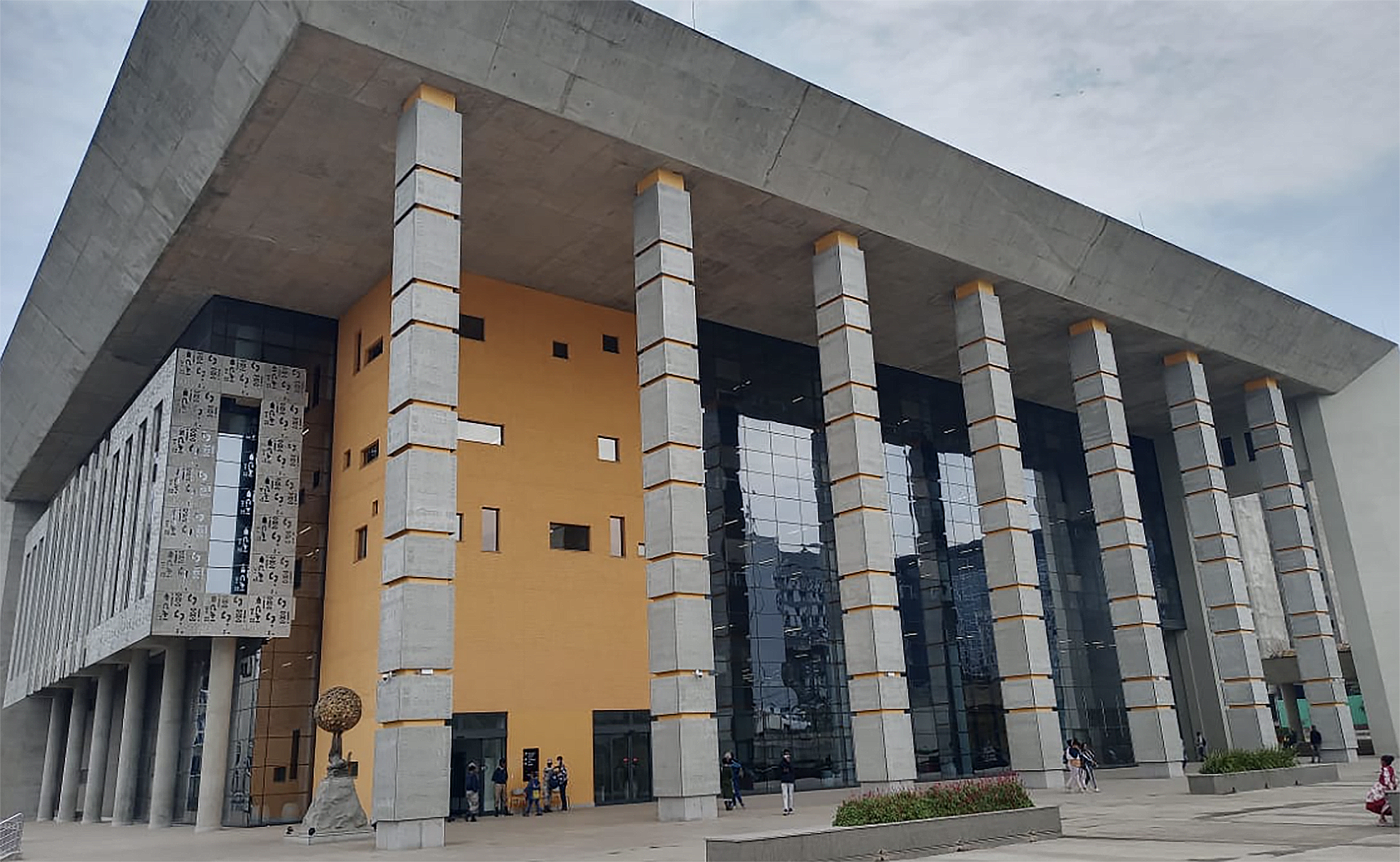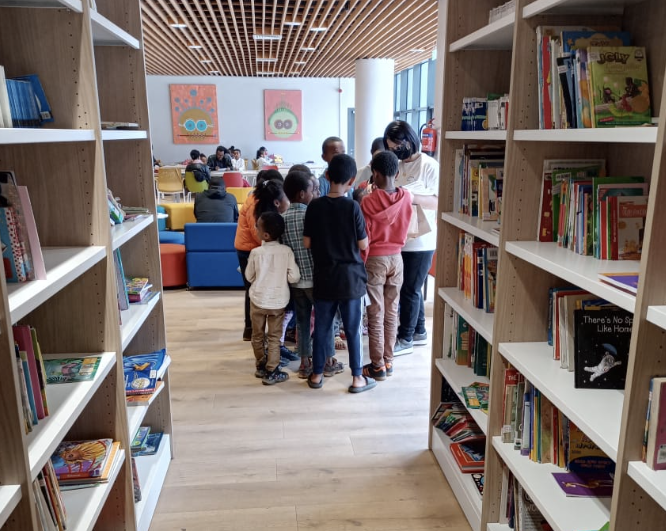DIGITAL DIVIDE OP-ED
Africa’s ICT education revolution is well advanced but South Africa risks missing out

Time is not on our side. For every year we do not achieve e-readiness in our schools, our learners fall behind. They don’t have access to online education lessons and all the incredible online resources that can be rolled out to every single school in the country once they are ICT-ready.
The Covid-19 pandemic brought to the fore the importance of digital infrastructure and exposed the digital gaps in and between countries and communities. The impact of the digital divide on the educational system in particular became glaringly obvious.
When schools in South Africa were closed during the pandemic there was no option for online learning for most due to a lack of infrastructure and skills in educational technologies. In schools that had the capacity to shift to online- or e-learning, many learners struggled not only academically, but also due to a lack of access to the internet, a suitable device or a suitable environment for studying.
During a recent visit to East Africa, it became evident that South Africa is fast falling behind in the advancement of the use of technology in a range of different spaces. There is an urgent need for South Africa to focus on digitisation and digitalisation, as is happening in a country like Ethiopia where the information and communications technology (ICT) landscape is rapidly evolving.

A general view of the Abrehot Public Library in Addis Ababa, Ethiopia. (Photo: Prof Darelle van Greunen)
A good example is the new Abrehot Library in Addis Ababa, an initiative of the prime minister. It spans 19,000m² in the heart of the city. During our visit — on a Sunday — it was packed with young people sitting and reading and working on their laptops.
There is 5G internet throughout and the whole four-storey library is a user-friendly, people’s space. Abrehot means “enlightenment” in Amharic and the uptake is phenomenal, with up to 2,000 users at a time. Apart from books, the library houses more than 300,000 local and 120,000 international research papers with digital access provided. This is how a library should function in the 21st century.

A general view of the Abrehot Public Library in Addis Ababa, Ethiopia. (Photo: Prof Darelle van Greunen)
Another good example is Uganda where public libraries, staffed by public librarians with e-training skills, are becoming the go-to places for people who want to learn digital skills. The libraries are achieving recognition, attracting trainees from all walks of life, and are receiving new donations of computers, internet connections and data packages to create places of access for the community at large.

A general view of the Abrehot Public Library in Addis Ababa, Ethiopia. (Photo: Prof Darelle van Greunen)
The ongoing expansion and improvement of data infrastructure in Uganda is playing a major role in the country’s economic development and boosting the contribution of the ICT sector to educational advances. Kenya is creating a similar environment.
South Africa is fortunate to have libraries in every city and town, but they are not being properly used or not used at all. Our libraries should be vibrant wifi hubs for learners and students in every community. They should play a key role in enhancing education, literacy levels and language ability, and contribute to nurturing a culture of education through providing access to knowledge. Unsuitable material can be blocked.
Visit Daily Maverick’s home page for more news, analysis and investigations
There is certainly advancement in digital access in many of the schools in our urban areas and certainly a commitment from government to embrace e-schools. But the e-readiness movement is far too slow within the South African schooling context, and we need to be far more urgent and innovative as to how we expedite this.
The necessity for e-readiness and ICT capacity in our schools has been emphasised for years, with pledges from government in 2013 to deliver free broadband access to 90% of South Africa by 2020 and 100% by 2030 through its SA Connect campaign. The goal of South Africa’s 2004 White Paper on e-education was for every learner in the country to be ICT capable by 2013, and for teachers to use ICT to enhance teaching and learning. Neither has been achieved.
In East Africa, by contrast, significant strides are being made in universal broadband access, such as through fibre optic infrastructure launched from Kenya’s port of Mombasa.
The challenge is not that we don’t have strategies, it’s that we lack implementation, and this must change. To assess and evaluate the e-readiness of all government schools in South Africa, the Centre for Community Technologies (CCT) at Nelson Mandela University helped to develop an eReady ICT Maturity Assessment tool in the form of an easy-to-use app.
In 2020, the app was rolled out to 8,000 of South Africa’s 26,000 government schools to understand the level of intervention required to enable ICT-based education in government schools.
This helped us to refine the app so that it can be rolled out to all 26,000 schools towards the end of this year. At the same time, the Department of Basic Education needs to make sure it has the budget to expedite the process, not only to assist the schools to become ICT ready but also to train the educators. There is no point in having high-tech schools without trained teachers to support this.
Time is not on our side. For every year we do not achieve e-readiness in our schools, our learners, particularly in the rural and township areas, fall behind. They don’t have access to online education lessons and all the incredible online resources that can be rolled out to every school in the country once they are ICT-ready.
Meanwhile, the African Union has expressed interest in the ICT Maturity Assessment tool to support its digital education strategy for youth in Africa. The AU is working on a framework for engagement and acceleration of the adoption of digital technologies from 2023 to 2028. South Africa needs to work out how we can align our ICT readiness strategy with that of the AU to accelerate it.
Relevant stakeholders need to join hands on the African continent for joint research, new knowledge and innovation. There is a need to focus on ICT as this is certainly Africa’s knowledge springboard.
In the same way that cell phones bypassed landlines at lightning speed for communication, e-readiness can do the same for education. DM
Prof Darelle van Greunen is Director of the Centre for Community Technologies (CCT) at Nelson Mandela University.


















 Become an Insider
Become an Insider
Comments - Please login in order to comment.